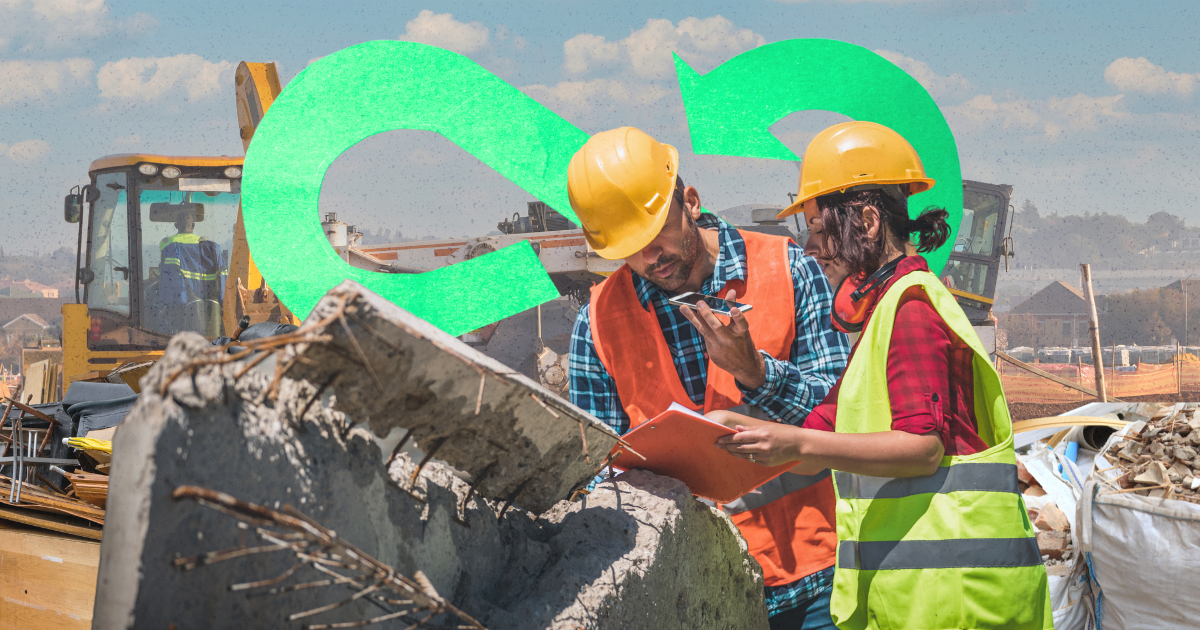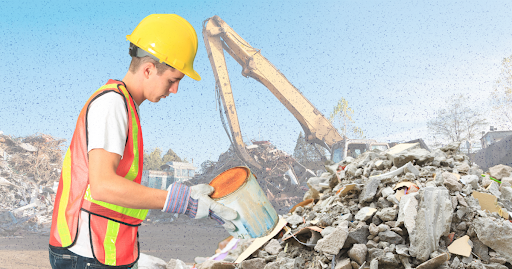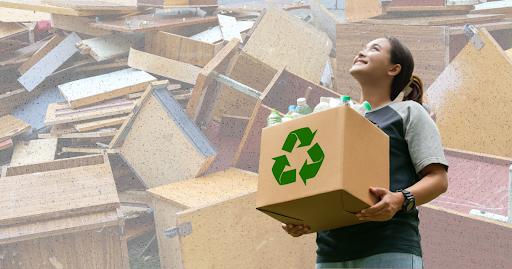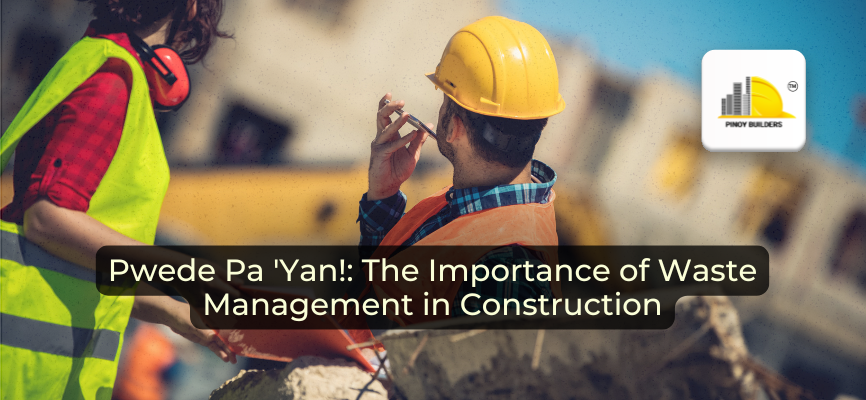The construction industry is notorious for generating significant amounts of waste, contributing an estimated third of the world’s overall waste, and at least 40% of the world’s carbon dioxide emissions. Because of this, the industry is a big cause of environmental degradation and resource depletion. With the rising concerns about climate change and sustainability, effective waste management has become a crucial focus for builders and contractors.
Not only does waste management help reduce landfill overflow, but it also promotes a circular economy. This refers to the process that keeps reusable materials in use, contributing to a more sustainable future. In this article, let’s learn about the importance of waste management in construction and highlight the contribution of Geocycle in steering the industry towards a greener future.

The Role of Waste Management in Construction
Effective waste management involves systematically handling waste materials generated during construction activities. This includes proper collection, sorting, recycling, and disposal of waste. The concept is simple: the construction industry can significantly reduce its environmental footprint by managing waste responsibly. Geocycle is a leading player in this space, providing innovative waste management solutions that emphasize recycling and recovery.
Geocycle transforms waste into resources through various processes, helping construction companies divert materials from landfills. This not only reduces greenhouse gas emissions but also conserves valuable natural resources that would otherwise be wasted in dumps. Geocycle’s initiatives emphasize circularity, ensuring that materials are reused, repaired, or recycled, keeping them in circulation for as long as possible.
Circularity: A Key Concept for Sustainable Construction

The concept of circularity is essential in promoting sustainability in construction. It aims to create a closed-loop system where waste is minimized, and resources are continuously reused. In the context of construction, this means designing buildings and projects that facilitate the reuse and recycling of materials.
Geocycle’s approach embodies circularity by providing waste management solutions that enable the construction industry to minimize waste and maximize resource efficiency. Focusing on recycling and recovery, Geocycle helps companies adopt practices that are not only environmentally friendly but also economically beneficial. This transition to a circular economy in construction not only helps reduce costs but also meets the increasing demand for sustainable practices from clients and stakeholders.
The Importance of Waste Management and Circularity
Implementing effective waste management practices and embracing circularity in construction projects can lead to numerous benefits:
- Environmental Protection: Proper waste management reduces pollution, preserves natural resources, and mitigates the impact of construction activities on the environment.
- Cost Savings: By reusing and recycling materials, construction companies can lower disposal costs and reduce the need for new raw materials, ultimately saving money.
- Regulatory Compliance: Adopting sustainable waste management practices helps companies comply with increasingly stringent environmental regulations.
- Enhanced Reputation: Demonstrating a commitment to sustainability can enhance a company’s reputation, attracting clients who prioritize environmental responsibility.
Embracing Waste Management for a Sustainable Future

Effective waste management is crucial for the construction industry, as it addresses the pressing issues of environmental degradation and resource depletion. By adopting sustainable practices, such as the recycling and recovery initiatives championed by organizations like Geocycle, the construction sector can significantly reduce its environmental footprint. Embracing circularity not only mitigates waste but also fosters economic benefits by conserving resources and lowering costs.
As the industry moves toward a more sustainable future, the importance of responsible waste management cannot be overstated. By prioritizing these practices, construction companies can contribute to a healthier planet while meeting the growing demand for sustainability from clients and stakeholders.
Looking for ways to begin your waste management initiatives? Join us for our upcoming webinar, ‘Sustainability in Construction 2024: Building the Blueprint for a Greener Future,’ on September 24, 2024 (Tuesday, 2-6 PM).
Register for the webinar here: Sustainability in Construction 2024: Building the Blueprint for a Greener Future
Hear from industry experts, including Sam Manlosa, Chief Sustainability Officer of Geocycle, who will discuss the latest trends and the future of sustainability in construction.



